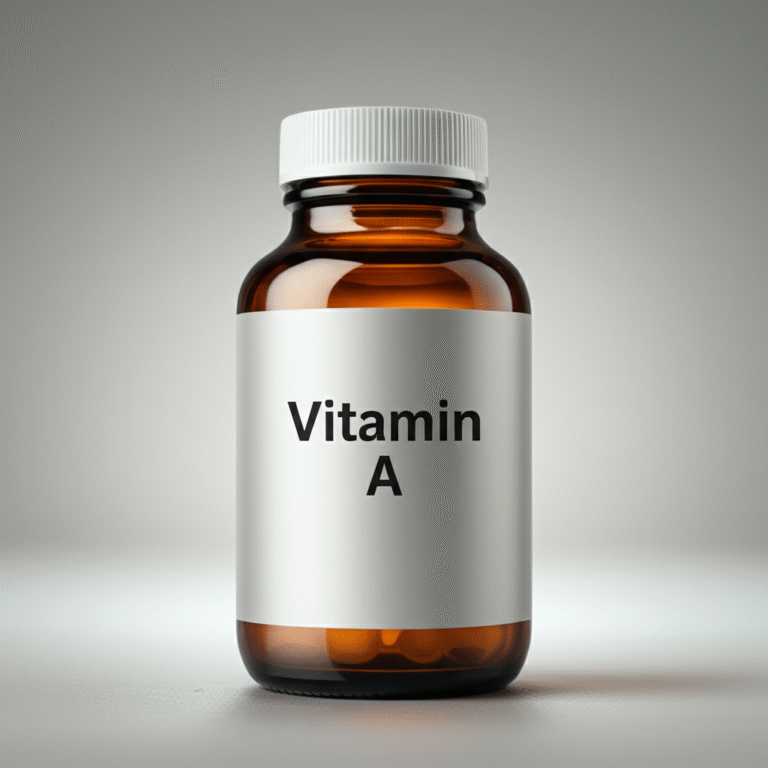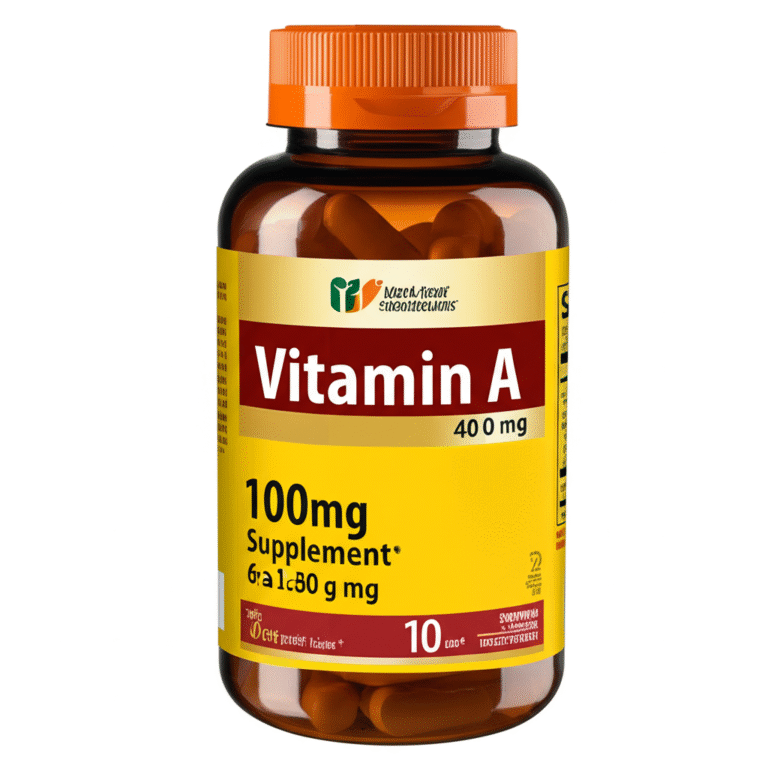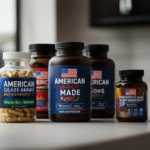Support our educational content for free when you purchase through links on our site. Learn more
Is There a Difference in Vitamin Brand Quality? 12 Must-Know Facts (2025) 🌟
Ever stood in the vitamin aisle, overwhelmed by rows of colorful bottles promising everything from “miracle energy” to “youthful skin,” and wondered: Does it really matter which brand I pick? Spoiler alert — yes, it absolutely does! But the truth behind vitamin quality isn’t as simple as price tags or fancy packaging. Some brands deliver pure, potent nutrients your body can actually absorb, while others might be selling you little more than expensive fillers.
In this article, we peel back the curtain on the vitamin industry’s best-kept secrets. From decoding labels and spotting red flags, to understanding bioavailability and the importance of third-party testing, we reveal 12 essential facts every savvy supplement shopper should know. Plus, we share our top brand picks that balance quality, transparency, and value — so you can stop guessing and start thriving.
Ready to become a vitamin detective? Let’s dive in and uncover the truth behind the brands!
Key Takeaways
- Vitamin quality varies widely — not all brands deliver what they promise.
- Third-party certifications like USP and NSF are crucial for verifying purity and potency.
- Price isn’t everything — some affordable brands offer excellent quality, while expensive ones can overcharge for marketing.
- Bioavailability matters — the form of the vitamin affects how well your body absorbs it.
- Avoid proprietary blends and MLM brands that lack transparency.
- Supplements support but don’t replace a balanced diet; personalized choices are best.
👉 Shop trusted vitamin brands here:
- Ritual Essential for Women 18+ | Ritual Official Website
- Thorne Research Supplements | Thorne Official Website
- Garden of Life Vitamins | Garden of Life Official Website
Table of Contents
- ⚡️ Quick Tips and Facts
- 📜 The Great Vitamin Debate: Unpacking the Quality Question
- 🔍 Beyond the Bottle: What Really Defines Vitamin Quality?
- 🧪 Decoding the Label: Essential Ingredients vs. Unwanted Fillers
- ✨ Bioavailability Bonanza: Why How Your Body Absorbs Matters
- ⚖️ The Wild West of Supplements: Understanding Regulation and Oversight
- ✅ Third-Party Testing: Your Quality Assurance Superpower
- 🚨 7 Red Flags: How to Spot a Low-Quality Vitamin Brand
- 💰 The Price Tag Puzzle: Are More Expensive Vitamins Always Better?
- 🍎 Food First vs. Supplement Support: When Do You Really Need That Pill?
- 🚫 Navigating the MLM Maze: Why Brand Source Matters
- 🎯 Personalized Potency: Tailoring Your Vitamin Choices
- ⚠️ Common Concerns & Cautions: Staying Safe with Supplements
- 💡 Our Top Tips for Choosing a High-Quality Vitamin Brand
- 🎉 Conclusion
- 🔗 Recommended Links
- ❓ FAQ
- 📚 Reference Links
⚡️ Quick Tips and Facts
Welcome to the vitamin jungle! 🌿 Before we dive into the nitty-gritty of vitamin brand quality, here are some quick hits from the pros at Vitamin Brands™ to get you started:
- ✅ Not all vitamins are created equal — quality varies widely by brand, ingredient source, and manufacturing standards.
- ✅ Third-party testing seals like USP, NSF, or ConsumerLab are your best friends for quality assurance.
- ✅ Price ≠ quality — expensive doesn’t always mean better, and cheap doesn’t always mean bad.
- ✅ Look beyond marketing hype: check ingredient lists, dosages, and avoid proprietary blends that hide amounts.
- ✅ Bioavailability matters — the form of the vitamin affects how well your body absorbs it.
- ✅ Supplements are just that — supplements — a balanced diet is still your #1 nutrient source.
- ✅ Beware of MLM brands — many lack transparency and rigorous testing.
- ✅ Consult your healthcare provider before starting any new supplement regimen.
For a deeper dive, check out our detailed guide on 7 Key Differences Between Synthetic & Natural Vitamin Supplements 🌿.
📜 The Great Vitamin Debate: Unpacking the Quality Question
Let’s face it — when you walk down the vitamin aisle, it’s like entering a candy store for adults. So many brands, so many claims, so many colors! But is there really a difference in the quality of vitamin brands? Spoiler alert: yes, but it’s nuanced.
Quality isn’t just about fancy packaging or celebrity endorsements. It’s about:
- The purity and potency of ingredients.
- How well the vitamin is absorbed and utilized by your body.
- The manufacturing practices ensuring safety and consistency.
- Transparency about what’s actually inside the bottle.
Our team at Vitamin Brands™ has seen firsthand how some brands cut corners — using cheap fillers, questionable ingredient sources, or skipping third-party testing. Meanwhile, trusted brands like Ritual, Garden of Life, and Thorne Research invest heavily in quality control and transparency.
Stay tuned as we peel back the layers on what really defines vitamin quality, so you can make savvy choices without getting lost in the marketing maze.
🔍 Beyond the Bottle: What Really Defines Vitamin Quality?
Quality vitamins are like a well-crafted recipe — every ingredient matters, and the process counts. Here’s what to look for:
1. Ingredient Sourcing and Purity
- Natural vs. synthetic: Natural vitamins come from whole foods; synthetic are lab-made. Both can be effective, but natural sources often have better bioavailability. (See our in-depth article for more.)
- Purity: Avoid brands with unnecessary fillers, artificial colors, or allergens.
- Organic and non-GMO certifications can be a plus but aren’t guarantees of potency.
2. Manufacturing Standards
- Look for brands that manufacture in FDA-registered facilities following Good Manufacturing Practices (GMP).
- Brands like NOW Foods and Nature Made are known for strict quality controls.
3. Dosage Accuracy and Label Transparency
- The label should clearly state the amount of each nutrient per serving.
- Beware of proprietary blends that hide ingredient amounts.
- The dosage should align with Recommended Dietary Allowances (RDA) or clinically supported levels.
4. Stability and Shelf Life
- Vitamins degrade over time; quality brands ensure stability through proper packaging (dark bottles, blister packs).
- Check expiration dates — expired vitamins lose potency.
🧪 Decoding the Label: Essential Ingredients vs. Unwanted Fillers
Ever squinted at a vitamin label and wondered what half those ingredients even are? You’re not alone! Here’s how to decode that fine print:
| Ingredient Type | What to Look For | What to Avoid |
|---|---|---|
| Active Nutrients | Vitamins, minerals, amino acids, herbs | Missing or vague amounts |
| Fillers & Binders | Minimal, natural (e.g., rice flour) | Artificial colors, magnesium stearate, talc, fillers in excess |
| Additives | Natural flavors, organic coatings | Synthetic dyes, preservatives |
| Proprietary Blends | Transparent amounts | Hidden dosages, making efficacy unclear |
Pro Tip: Brands like MegaFood and Pure Encapsulations pride themselves on clean labels and minimal fillers.
✨ Bioavailability Bonanza: Why How Your Body Absorbs Matters
Taking a vitamin is only half the battle — your body has to actually absorb and use it. Bioavailability is the star of the show here.
- Forms matter: For example, Vitamin D3 (cholecalciferol) is better absorbed than D2.
- Chelated minerals (minerals bound to amino acids) absorb better than inorganic forms.
- Fat-soluble vitamins (A, D, E, K) require dietary fat for absorption.
- Delivery format: Gummies, capsules, liquids, powders — some forms absorb better or suit different lifestyles.
Our health pros recommend brands like Thorne Research and Garden of Life that use highly bioavailable forms.
⚖️ The Wild West of Supplements: Understanding Regulation and Oversight
Here’s a little secret: the supplement industry is like the Wild West — loosely regulated compared to pharmaceuticals.
- The FDA does not approve supplements before they hit shelves.
- Manufacturers are responsible for ensuring safety and labeling accuracy.
- Post-market surveillance is limited, so quality can vary.
- This is why third-party testing is crucial.
For more on regulation, check out the FDA’s official page on Dietary Supplements.
✅ Third-Party Testing: Your Quality Assurance Superpower
If you want peace of mind, look for these third-party certifications on your vitamin bottle:
| Certification | What It Means | Trusted Brands with Certification |
|---|---|---|
| USP | Verified ingredient quantity and purity | Nature Made, NOW Foods |
| NSF | No harmful contaminants; sport-safe | Thorne Research, Pure Encapsulations |
| ConsumerLab | Independent lab testing for potency and safety | MegaFood, Garden of Life |
These seals mean the product was tested by an independent lab — a huge plus in a market where the FDA doesn’t pre-approve supplements.
🚨 7 Red Flags: How to Spot a Low-Quality Vitamin Brand
Don’t get duped! Here are 7 red flags to watch out for:
- ❌ Proprietary blends with no ingredient amounts — hides what you’re really getting.
- ❌ Excessive fillers and artificial additives — unnecessary and potentially harmful.
- ❌ No third-party testing or certifications — no quality assurance.
- ❌ Claims that sound too good to be true — “cure-all” or “miracle” promises.
- ❌ No expiration date or vague labeling.
- ❌ Made in unregulated countries without transparency.
- ❌ Multi-level marketing (MLM) brands with inflated prices and questionable quality.
💰 The Price Tag Puzzle: Are More Expensive Vitamins Always Better?
Here’s the million-dollar question: does paying more guarantee better quality? The short answer: not necessarily.
- Some budget brands like Nature Made and Kirkland Signature offer solid quality with verified ingredients.
- Expensive brands may charge a premium for marketing, fancy packaging, or celebrity endorsements.
- However, very cheap vitamins might skimp on ingredient potency or use poor fillers.
- The sweet spot is brands that balance quality, transparency, and value.
Our team loves Ritual Essential for Women 18+ for its clean formula and transparency, and Thorne Research for bioavailability, both priced fairly for what you get.
🍎 Food First vs. Supplement Support: When Do You Really Need That Pill?
We can’t stress this enough: supplements are supplements, not substitutes. Whole foods provide a complex matrix of nutrients and cofactors that pills can’t replicate.
Who might need supplements?
- Pregnant or breastfeeding women (e.g., folic acid, iron).
- Older adults with decreased absorption.
- People with dietary restrictions (vegan, gluten-free).
- Those with diagnosed deficiencies (vitamin D, B12).
- Certain medical conditions or medications affecting nutrient absorption.
If you’re healthy and eat a balanced diet, you might not need a multivitamin at all. But if you do, choose wisely!
🚫 Navigating the MLM Maze: Why Brand Source Matters
Multi-level marketing (MLM) companies like Herbalife, Amway, and Plexus flood the market with supplements. Here’s what we’ve learned:
- MLM products often lack third-party testing.
- Ingredients may be lower quality or inconsistent.
- Prices are often inflated due to commission structures.
- Marketing focuses more on recruitment and hype than science.
- Consumer reviews frequently mention side effects or lack of efficacy.
We recommend sticking with reputable brands that prioritize transparency and quality over sales tactics.
🎯 Personalized Potency: Tailoring Your Vitamin Choices
One size doesn’t fit all in vitamins. Factors to consider:
- Age and gender: Nutrient needs vary widely.
- Lifestyle: Athletes, vegetarians, or those under stress may require different support.
- Health status: Chronic conditions or medications can affect nutrient needs.
- Genetics: Some people metabolize vitamins differently.
Brands like Persona Nutrition and Care/of offer personalized vitamin packs based on your health profile and goals.
⚠️ Common Concerns & Cautions: Staying Safe with Supplements
Safety first! Here are some important cautions:
- Interactions: Supplements can interact with medications (e.g., blood thinners and vitamin K).
- Toxicity: Fat-soluble vitamins (A, D, E, K) can accumulate and cause harm if overdosed.
- Side effects: Some herbs or high doses cause nausea, headaches, or allergic reactions.
- Pregnancy and surgery: Always consult your doctor before supplement use.
- Storage: Keep vitamins in cool, dry places away from sunlight to maintain potency.
💡 Our Top Tips for Choosing a High-Quality Vitamin Brand
To wrap up this vitamin voyage, here’s our checklist to pick the best brand for you:
- ✅ Look for third-party certifications (USP, NSF, ConsumerLab).
- ✅ Check the ingredient list for transparency and appropriate dosages.
- ✅ Avoid proprietary blends that hide ingredient amounts.
- ✅ Choose brands with GMP-certified manufacturing.
- ✅ Consider bioavailability — prefer active forms (e.g., methylated B vitamins).
- ✅ Read user reviews and expert opinions.
- ✅ Avoid MLM brands or those with aggressive marketing.
- ✅ Consult your healthcare provider for personalized advice.
👉 Shop trusted vitamin brands on Amazon or visit their official sites:
- Ritual Essential for Women 18+: Amazon | Ritual Official Website
- Thorne Research: Amazon | Thorne Official Website
- Garden of Life: Amazon | Garden of Life Official Website
- MegaFood: Amazon | MegaFood Official Website
Ready to make your vitamin choices with confidence? Keep these insights handy and remember: quality matters, but so does YOU. Your body deserves the best fuel! 🚀
🎉 Conclusion
So, is there a difference in the quality of vitamin brands? Absolutely — but it’s not always obvious at first glance. Quality vitamins come down to transparency, purity, bioavailability, and trustworthy manufacturing practices. Price alone won’t guarantee you the best product, but neither should you settle for the cheapest option without scrutiny.
We’ve uncovered the red flags to avoid, the certifications to seek, and how to decode labels like a pro. Remember, your body deserves vitamins that deliver what they promise, without hidden fillers or sketchy blends.
If you’re looking for a confident recommendation, brands like Ritual, Thorne Research, and Garden of Life consistently earn our seal of approval for quality, transparency, and efficacy. They balance science-backed ingredients with clean formulations and third-party testing — so you get the nutrients your body actually needs.
And if you’re tempted by MLM brands or flashy marketing, pause and consider the facts: many lack rigorous testing and transparency, which could mean you’re paying more for less.
At Vitamin Brands™, we believe in empowering you with knowledge so you can confidently navigate the vitamin aisle and supplement shelves. Your health is your most valuable asset — fuel it with quality, not hype.
🔗 Recommended Links
👉 Shop trusted vitamin brands and supplements:
-
Ritual Essential for Women 18+:
Amazon | Ritual Official Website -
Thorne Research Supplements:
Amazon | Thorne Official Website -
Garden of Life Vitamins:
Amazon | Garden of Life Official Website -
MegaFood Supplements:
Amazon | MegaFood Official Website
Recommended books for deeper vitamin knowledge:
- The Vitamin D Solution by Dr. Michael F. Holick — Amazon Link
- The Supplement Handbook by Dr. Mark Moyad — Amazon Link
- Eat to Beat Disease by Dr. William Li — Amazon Link
❓ FAQ
What makes a high-quality vitamin brand?
A high-quality vitamin brand prioritizes transparency, purity, and efficacy. This means:
- Using clinically supported ingredient forms with proven bioavailability.
- Providing clear, accurate labeling with no hidden proprietary blends.
- Manufacturing in FDA-registered, GMP-certified facilities.
- Undergoing third-party testing by organizations like USP, NSF, or ConsumerLab to verify potency and purity.
- Avoiding unnecessary fillers, artificial additives, and allergens.
- Maintaining freshness and stability through proper packaging and expiration date management.
Brands like Ritual and Thorne Research exemplify these qualities.
How do I choose the best vitamin supplement for my needs?
Choosing the best vitamin supplement depends on your:
- Age, gender, and life stage: Nutrient needs vary widely.
- Dietary habits: Vegans may need B12; those with limited sun exposure may need vitamin D.
- Health conditions and medications: Some supplements interact with drugs or are contraindicated.
- Lifestyle factors: Athletes or highly stressed individuals may require additional support.
- Personal preferences: Capsule, gummy, liquid, or powder forms affect absorption and convenience.
Consult your healthcare provider and consider personalized options like Persona Nutrition or Care/of for tailored vitamin packs.
Are expensive vitamins always better than cheaper alternatives?
Not necessarily. Price can reflect marketing, packaging, or brand prestige rather than ingredient quality. Many budget-friendly brands like Nature Made and Kirkland Signature offer products that meet quality standards and have third-party certifications.
However, extremely cheap vitamins may use low-potency ingredients or excessive fillers. The key is to look for third-party testing, transparent labeling, and appropriate dosages rather than just price tags.
What are the key factors to consider when evaluating the quality of a vitamin brand?
Key factors include:
- Ingredient quality and source: Prefer natural or bioavailable forms.
- Label transparency: Clear dosages, no hidden proprietary blends.
- Manufacturing standards: GMP-certified, FDA-registered facilities.
- Third-party testing: USP, NSF, or ConsumerLab seals.
- Shelf life and packaging: Proper storage to maintain potency.
- Reputation and reviews: Consumer feedback and expert endorsements.
- Avoidance of MLM brands with questionable practices.
How can I avoid potentially harmful supplements?
- Avoid supplements with unrealistic health claims or “miracle cures.”
- Check for third-party testing to ensure purity.
- Consult your doctor if you take medications or have health conditions.
- Be cautious with multi-level marketing (MLM) supplements, which often lack transparency.
- Store supplements properly and check expiration dates regularly.
📚 Reference Links
- FDA on Dietary Supplements
- USP Dietary Supplement Verification Program
- NSF International Supplement Certification
- ConsumerLab Independent Testing
- Healthline: How to Choose High-Quality Vitamins and Supplements
- WebMD: How to Evaluate Vitamins and Supplements
- CNET: Are Expensive Vitamins Better Than Cheap Ones?
- Ritual Official Website
- Thorne Research Official Website
- Garden of Life Official Website
- MegaFood Official Website
Ready to shop smart and supplement wisely? Your health journey just got a whole lot clearer! 🌟







